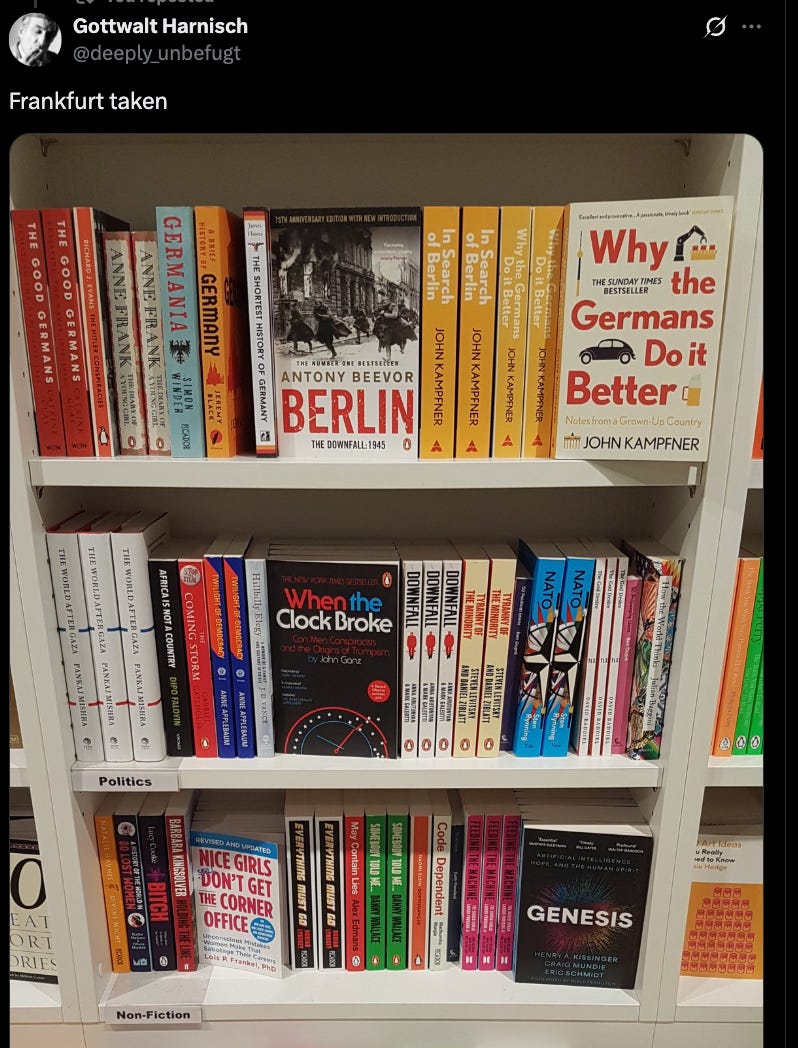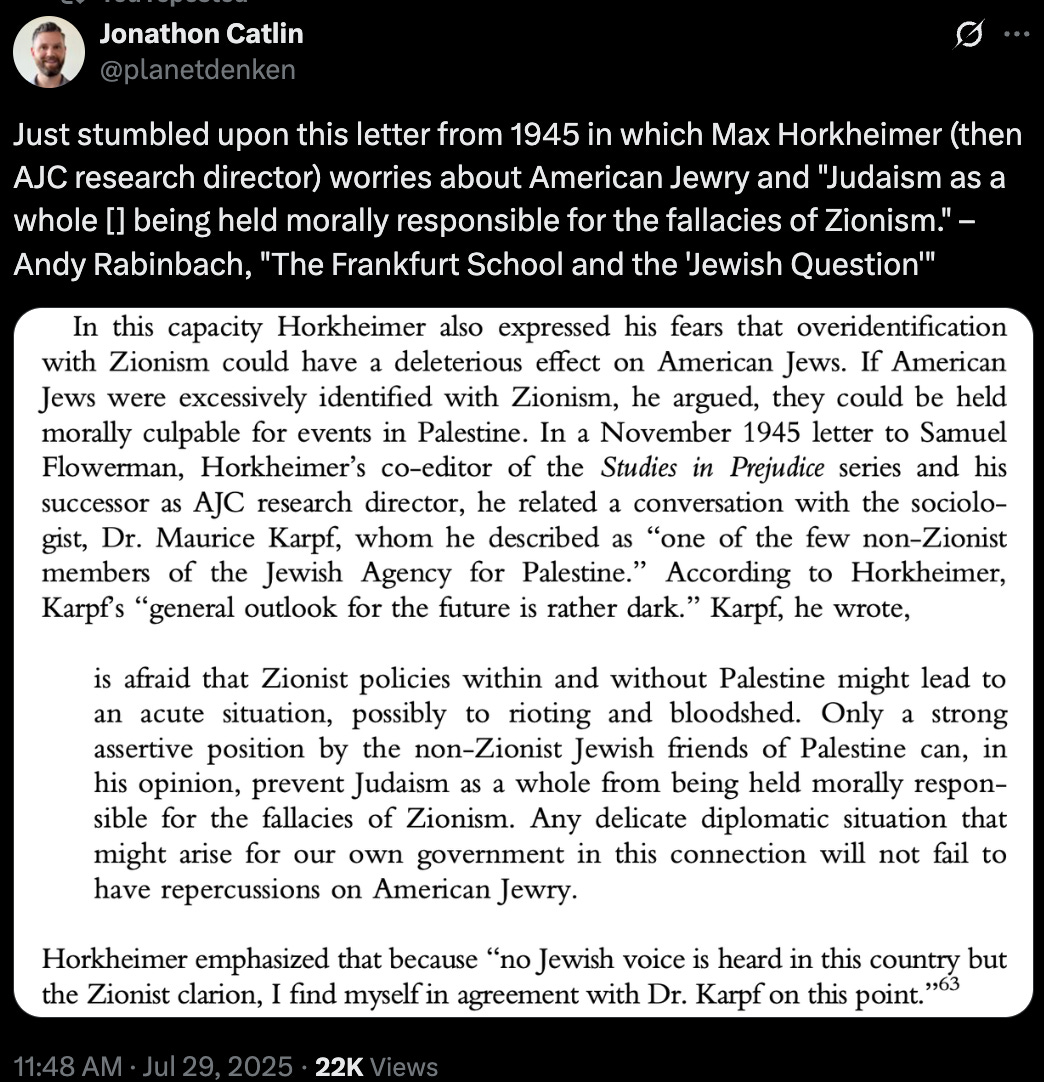Heresies; Stray Dog; Rachel Getting Married
Reading, Watching 08.03.25
This is a regular feature for paid subscribers wherein I write a little bit about what I’ve been reading and/or watching.
If you are not yet a paid subscriber but regularly read, enjoy, or share Unpopular Front, please consider signing up. This newsletter is completely reader-supported and represents my primary source of income. At 5 dollars a month, it’s less than most things at Starbucks. And it’s still less than the “recession special” at Gray’s Papaya — $7.50 for two hot dogs and a drink.
You can also buy When the Clock Broke, now out in paperback, available wherever books are sold. If you live in the UK, it’s also available there. I’m also thrilled to announce it’s available on the continent, too. Twitter account @deeply_unbefugt spotted it in the Frankfurt Hauptbahnhof! It’s always been my dream to have my book for sale at a European train station, as I bought many of what became my most cherished books in the English language section of those stores.
My buddy Jack, proprietor of the brand new Phantom Heresy Substack, has an excellent piece on a very real heresy: Christian Nationalism, in particular its relationship (and ours) with Israel and Zionism:
For many of the Church Fathers, scripture’s divine source is active only in the interpretative task of its dissemination, that is, in the community and tradition of the Church. In other words, “The Bible” only exists because of the Church, even if the Church only exists because of the Bible. (I don’t mean the Roman Catholic Church or any other denomination, but the full communion of Christian history, in all its variety.) Luther doesn’t exactly dispute this, but because of his more foundational teaching of total depravity—that all human action is thoroughly corrupt, and so requires God’s superabundant grace for salvation—doctrinal authority must have its source placed well beyond our influence. For Luther, scripture is as mysterious as revelation itself.
It goes without saying that this is hardly what American dispensationalists, evangelicals, and fundamentalists mean by “The Bible.” The literalism that marks these movements sidelines, ignores, and even rejects as subversive obscurantism questions about translation and interpretation that appear in most of Christian history at the center of theological debate and self-understanding. For these churches, the faith is not a calling to be pursued or a mystery to be discerned; it is an identity one holds or does not, a nation to be defended by any means necessary. The universalism proclaimed in Paul’s letter to the Galatians, that “there is neither Jew nor Greek, there is neither slave nor free, there is no male and female,” can only be ignored or distorted beyond recognition in order to make such a nationalism a viable form of Christian practice and belief.
Christian nationalism is a profound distortion of the tradition, a distinctly modern form of ideological tyranny, that, like its many constituent parts and tributaries—capitalism, the nation-state, biblical literalism—demands the reduction of human multiplicity to a single term held out above all others as superior. For this movement, to be Christian is to be American, and vice-versa, deviation from or even complication of which constitutes disloyalty and heresy. In other words, it demands fealty in the name of freedom.
Hat tip to intellectual historian Jon Catlin for surfacing this one:
That’s Max Horkheimer of Horkheimer and Adorno, of course. As Catlin notes, this comes from the essay “The Frankfurt School and the ‘Jewish Question,’ 1940–1970” by Anson Rabinbach, who passed away just this year, was a brilliant student of the legendary scholar George Mosse. It’s collected in Staging the Third Reich: Essays in Cultural and Intellectual History, along with many other fascinating papers.



